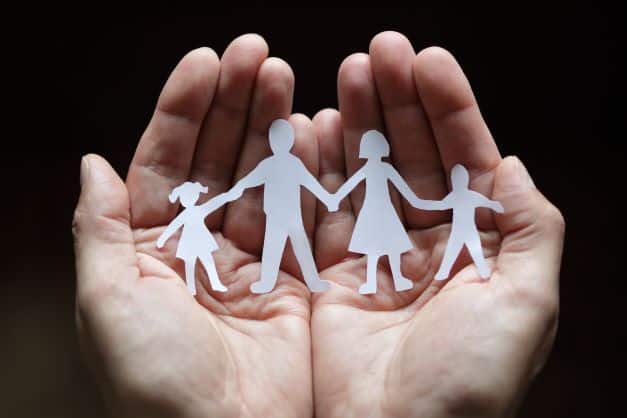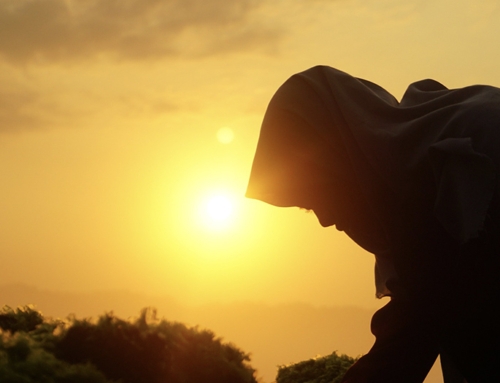The Intersection of LGBTQ and Islam: A Delicate and Polarizing Issue
Exploring the intersection between LGBTQ and the Islamic faith can be both delicate and polarizing. While Muslims often view sexuality from a moral standpoint, those within the LGBTQ movement view Islamic teachings on sexuality as backwards and in need of reform. They have asserted that any disagreement with LGBTQ lifestyle amounts to discrimination against them as individuals. This begs an important question: how incompatible are these two lenses through which we perceive sexual orientation? It is essential to recognize each other’s perspectives before delving into this complex discussion so that meaningful understanding can take place.
To begin, it is important to understand and clearly define terms such as human rights, justice, dignity, love, and equality. Everyone agrees that these concepts are important and necessary for healthy societies. However, what these terms mean in actuality are different depending on who is defining them. As will be pointed out later, these terms are general, but used in a very specific sense by the LGBTQ movement.
When approaching any subject, it is important to try and step back and look at it from the other perspective’s lens. Islam prohibits homosexuality, but before quickly dismissing it, it would be more objective to reexamine the lens and methods used by the LGBTQ community in defining sexuality and identity.
Sexuality and Identity
Today, if a Muslim were to say that homosexuality is prohibited in Islam, it is immediately viewed as an attack on people’s identities and existence rather than the act. This is because, historically, sexual orientations were simply actions, not identities. Today entire identities are built around sexual feelings and actions. For example, members of the LGBTQ community are often associated with being liberal, secular, and in most cases democrats. In the past, a sexual desire was just that, a desire, in contrast today entire identities are built on sexuality. This is due to the fact that the LGTBQ movement has worked very hard to establish itself as a community. By doing so, disagreeing with their actions is often equated to being racist. In fact, there are many cases where the LGBTQ community deceptively compares itself to communities that have suffered decades of racial inequality.
Islam’s View on Sexuality Compared to LGBTQ Movement
On the other hand, Muslims view sexuality through the lens of morality, whereas the LGBTQ movement portrays it as an issue of equality and rights. These two different approaches result in different views on the topic. This is why the LGBTQ movement often draws false equivalencies between race, gender, and sexual identity. Similarly, they conflate desire, action, and identity. This conflation results in the problematic assumption that if one is against the act of homosexuality, one must also be against people who practice it.
Additionally, the LGBTQ movement is taking on an extreme colonialist approach, where there is immense cultural and political pressure on individuals, communities, and countries to accept the LGBTQ movement and its goals. Any resistance to the movement is met with unjust accusations of being bigoted. The LGBTQ movement is quite dogmatic in forcing others to accept their understanding of sexuality. The movement’s transformation of desire into an identity became synonymous with rejecting the person’s very existence, and hence the comparison to denying dignity and human rights. Conversely, Islam does not categorize people based on their desires or orientations but based on their actions. One can have an orientation or desire, but Islam looks at people’s actions rather than their desires.
Sex and Boundaries
Are there any boundaries to what is sexually acceptable? Where do these boundaries get drawn and who gets to decide? Sex and the boundaries surrounding it impact the way people view the world. Historically, even in America, there was a point where sex outside of marriage was considered wrong and immoral. This idea may seem silly today, but in the early to mid-1900’s having sex outside of wedlock was taboo and it was rare to find people who weren’t married living together. In the 1960s there was a “sexual revolution” one that rejected Christianity. Christianity viewed sex as a means to procreate and build families. Once religion was removed from the equation, there was no need to constrain sex to the family structure. This shifted the stability of the nuclear family and there was a rapid increase in the number of children born out of wedlock and single parents. Sex became limited to a means of pleasure. Love, commitment, and agreeing to build a family together no longer became a prerequisite for sex, it was only consent. This helped the rise of sex between people of the same gender, if sex was no longer about building a family, then what is the difference between a man and a woman and two men or two women? However, this brings us to the question of boundaries.
If consent is all that is required, where does the LGBTQ community draw the boundaries for acceptable sexual practices? What if two consenting adults, who are also siblings, want to have sex? What about a father who wants to have sex with his adult daughter? One may immediately object and say that is wrong or disgusting, but without a reference to what wrong is, such as God, then “wrong” will forever remain subjective. Similar arguments about “wrong” or “disgusting” were made about homosexuality in the past, but with time it became accepted. On what grounds then, will other sexual acts, such as incest, not become acceptable and normal in the future? In actuality, every community, including the LGBTQ one, has boundaries for sexual behavior. The question becomes where does one draw the line? Being that the line for sexuality needs to be drawn somewhere, Islam draws that line to be between a man and a woman in marriage.
The LGBTQ Movement’s Boundaries on Sexual Behavior
Not clearly defining these boundaries results in vague statements that are applied inconsistently. For example, any form of sexuality the LGBTQ community deems good is considered progressive while all other is wrong, backward, and evil. The LGBTQ movement, and the West in general, are promoting a liberal Western understanding of sexual boundaries. For instance, they do not support polygamy, which Islam allows and was also the practice in the Old and New Testament. Polygamy in Islam is a marriage between a man and up to four women, all of which are consenting adults. However, Western countries prohibit polygamy, and the LGBTQ community does not include it in their cause, because they have certain boundaries about what is “good” sexuality versus “backward” sexuality. The terms “love” “equality” and “human rights” are limited to the types of sexual acts that the LGBTQ community promotes, and polygamous marriages are excluded from this. In other words, “love” and “equality” really means that you must accept my definition of boundaries for accepted sexual behaviors. If you do not, you are against love and equality, and therefore must be bigoted. However, this same term is not applied when speaking of other forms for sexuality such as polygamy. This illustrates that although these terms are appealing to any reasonable person, they are used in a very specific sense that excludes other understandings of sexuality.
Islam on Homosexuality
This brings us to the question of Islam and homosexuality. Islam does not view homosexuality as an identity. There is no term in Islam that equates with homosexuality, but there is the term sodomy because it is an act, not an identity. Islam prohibits any sexual relations outside of marriage, including between a man and a woman. This does not mean that Muslims are called to hate or pass judgment on the person, but they do pass judgment on the act. If someone cheats on their spouse, one will say this is wrong, but whether that person is good or bad, going to heaven or hell, is up to God, the ultimate judge. If one has feelings and desires toward someone of the opposite or of the same sex, they are not supposed to act on these. One may object and say that is oppressive, but again, every community including the LGBTQ one, tells others that certain sexual desires are wrong. For example, pedophilia is considered wrong and anyone who has such a desire would not only be told not to act on it if he/she did they would be punished by the state. According to Islam, if someone has an illicit desire toward those of the same gender, or for that matter of the opposite gender outside of wedlock, the desire itself does not make them evil, but acting upon it is a sin; however, the person remains Muslim. Although Muslims must absolutely treat everyone with dignity and respect, this does not mean that everyone’s actions are to be accepted and celebrated. Committing a sin does not take one out of the fold of Islam or make them unworthy of God’s love and compassion. God is the Most Forgiving and always accepts sincere repentance. On the contrary, rejecting that God is worthy to be worshipped and obeyed is what takes someone outside of the fold of Islam.
How Islamic Law Protects the Family Unit
Ultimately, Islam offers a paradigm where sexuality is closely tied to the nuclear family. The nuclear family is at the core of what makes a society healthy. One of the goals of Islamic law is to protect the family because of the many negative repercussions societies face when the family unit is abandoned. The LGBTQ argument shifts the discussion from a moral one, to one that is falsely framed around social justice, which is defined very subjectively. Islamic law seeks to build strong communities that have healthy families. Islam, is therefore, considered a way of life rather than a religion that is restricted to private acts of ritual worship. In this regard, God wants humans to live happy lives in the true sense of the word, one in which they put God above all, even their desires. Have more questions? Call 877-WhyIslam, you deserve to know!
To read more on this topic, check out this article about Islam and the LGBT Question.
Got Questions?
We have Answers. Get in touch now.








